

This is a compilation of just a few of Grinnell's most notable residents throughout history. Some were born here while many called Grinnell their home during their college years, but all have become part of our community's rich history. This list is not all-inclusive, so please email chamber@getintogrinnell.com if there are others you think should be added.
(Thank you to Grinnell resident and historian Dan Kaiser for compiling this list.)
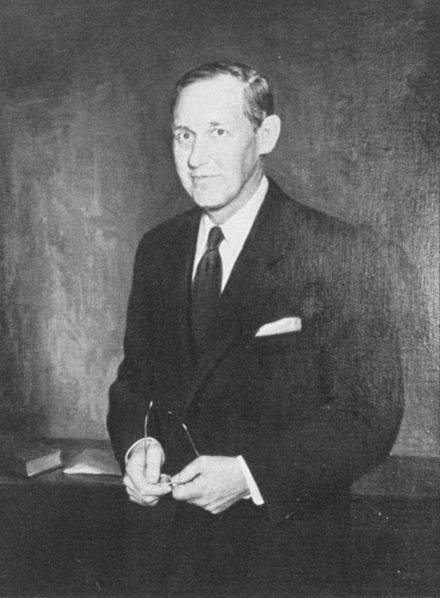
Harry Hopkins (1890-1946). Political activist. Born in Sioux City, IA, but later moved with his family to Grinnell where the 1910 census found them living at 1511 [sic; actually 1519] Elm Street; earlier they had lived at 1033 Elm. Hopkins graduated from Grinnell College in 1912, and soon moved to New York where he worked in a settlement house, the beginning of his life-long concern with the poor. He later was named executive secretary of the Bureau of Child Welfare, and during World War I moved to New Orleans to become director of Civilian Relief of the Red Cross there. In 1931 he was back in New York where Gov. Franklin D. Roosevelt named him executive director of the Temporary Relief Administration. Once Roosevelt was in the White House, he put Hopkins to work, first making him director of the Federal Emergency Relief Administration, then head of the Civil Works Administration, and later chief of the Works Progress Administration. During World War II Hopkins played a large role in administering Lend Lease, and later accompanied Roosevelt to meetings with Churchill and Stalin at Cairo, Tehran, Casablanca, and Yalta.
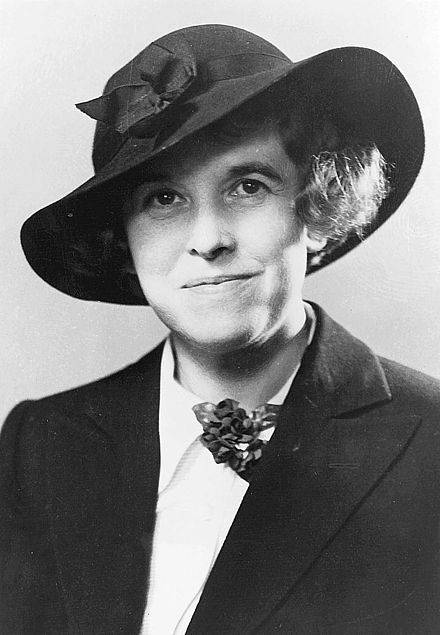
Hallie Flanagan (1890-1969). Active in Theater. Born Hallie Ferguson in Redfield, SD, she moved to Grinnell in 1900 and attended school here. She graduated from Grinnell College in 1911, maintaining residence at the family home at 1421 Broad. Having married soon after college, Hallie returned to Grinnell and the home on Broad Street in 1918 to teach drama at the college while her husband was being treated for tuberculosis in Colorado (he died in 1919). In 1923 she moved to Cambridge, MA to study drama, and soon thereafter accepted appointment at Vassar where she remained until 1935, along the way becoming the first woman ever to win a Guggenheim Fellowship (1926). In 1935 she was appointed Director of the Federal Theater Project in the Works Progress Administration, but endured a controversial tenure there. After 1940 she held several posts at Smith College, but in 1955 retired to Poughkeepsie, NY, where she lived until her death.
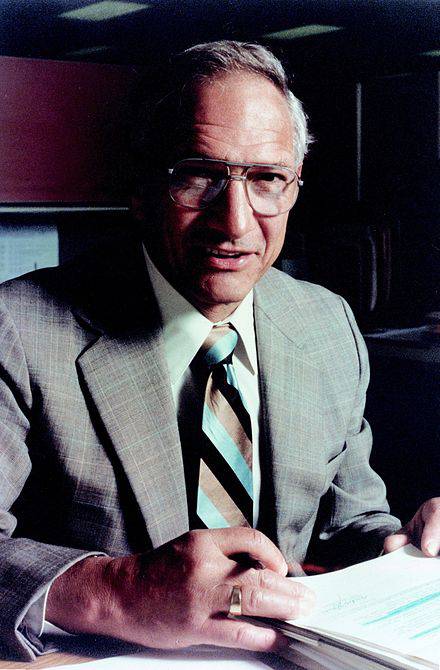
Robert Noyce (1927-1990), co-inventor of the first integrated circuit, which gave birth to the computer revolution. Born in Burlington, IA, he attended high school in Grinnell before entering Grinnell College (class of 1949). In his years at Grinnell, the family lived first at 1003 Tenth Avenue (presently the Grinnell College Black Cultural Center), 1404 West Street, and finally at 1313 Main Street. He later earned a PhD from MIT, and in 1957 he and some friends founded Fairchild Semiconductor; with Gordon Moore in 1968 he founded Intel. Noyce won many awards, including the National Medal of Technology, which he received from President Reagan at the White House in 1987. He also won the National Medal of Science, was elected a fellow of the American Academy of Arts and Sciences, and in 1989 received the Charles Stark Draper Prize from the National Academy of Engineering.
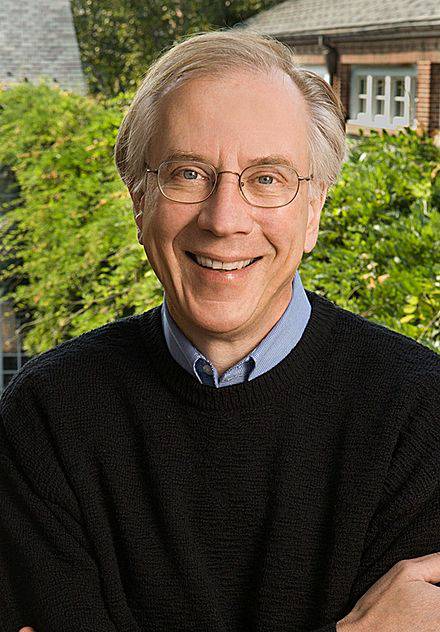
Thomas Cech (1947- ), chemist who shared the 1989 Nobel Prize in chemistry for the discovery of catalytic properties of RNA He served as president of the Howard Hughes Medical Institute, and has long taught at the University of Colorado. Born in Chicago, IL, but raised in Iowa City, IA, Cech graduated from Grinnell College in 1970 with a chemistry major. He went on to get a PhD at University of California, Berkeley, then did post-doctoral research at MIT. Among the numerous awards Cech has collected are the Heineken Prize of the Royal Netherlands Academy of Sciences, the Albert Lasker Basic Medical Research Award, and the National Medal of Science. While a student at Grinnell, Cech lived in Loose and Smith Halls.
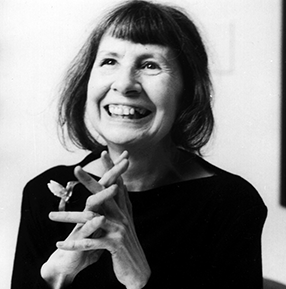
Amy Clampitt (1920-1994). Poet. Born in New Providence, IA, and entered Grinnell College (class of 1941) in 1937. While at Grinnell Clampitt lived at Pine Tree Place (1128 East St.), and the following year at 1011 Park (demolished). She only began to publish poetry when she was in her 60s: her first collection of poems, The Kingfisher, appeared in 1983. Several more books of poetry followed, including The Silence Opens, published the same year she died. Clampitt taught at the College of William and Mary, Smith College, and Amherst College; was a recipient of a Guggenheim Fellowship and a MacArthur “genius” fellowship; and was a member of the American Academy of Poets and the American Academy of Arts and Sciences.
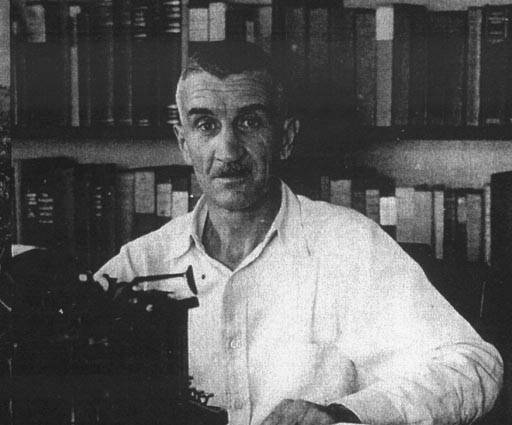
James Norman Hall (1887-1951). Novelist, best known for Mutiny on the Bounty. Born to Arthur and Ella Hall in Colfax, IA; as a student at Grinnell College (class of 1910) Hall lived at Chapin House (demolished), 713 Main (1907), 1022 Park (demolished), and 1402 Main (1909). Hall led an exciting life, beginning with his posing as a Canadian in order to volunteer for the British army at the outbreak of World War I. He later joined some American pilot volunteers who had formed the Lafayette Escadrille. His wartime service earned him the Croix de Guerre and Légion d’Honneur from France and the Distinguished Service Cross from the Americans. After the war, he and his fellow-pilot and later co-author, Charles Nordhoff, moved to Tahiti where they wrote a number of adventure stories (The Hurricane, 1936; Botany Bay, 1941) that became movies. But the Bounty Trilogy (Mutiny, 1932; Men Against the Sea, 1934; and Pitcairn’s Island, 1934) remains their best-known work.
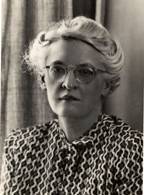
Ruth Suckow (1892-1960). Novelist, short-story writer. Born in Hawarden, Iowa to the family of a Congregationalist minister, she and her family moved to Grinnell in 1907, settling at 1208 Main Street. Ruth attended Grinnell College for three years, but did not live at home; instead she boarded at 1322 Broad, then at 1405 Park, and finally at 1515 Broad with Dr. Brock’s family. She then left the college without having received her degree. Author of numerous stories, Suckow also published a series of novels, most borrowing from her Iowa roots: The Folks (1934); New Hope (1942); and The John Wood Case (1959). She also published a memoir along with several stories in Some Others and Myself (1952).
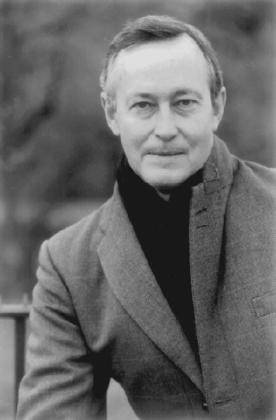
Curtis Harnack (1927-2013), novelist and memoirist, was born in Remsen, IA, and later became a student at Grinnell College (class of 1949), where he lived in Cowles Hall for at least three years. Author of numerous books, including the novels The Work of an Ancient Hand (1960) and Love and Be Silent (1962); We Have All Gone Away (1973), a memoir; two more novels, Under My Wings Everything Prospers (1977) and Limits of the Land (1979); The Attic (1993), another memoir; and Gentlemen on the Prairie (1985). He taught English at Grinnell from 1952-56, at which time he lived at 1016 Fifth Avenue (demolished); he later taught at Sarah Lawrence College as well as at the Iowa Writers Workshop. From 1971-1987 he was president of Yaddo, the artists’ retreat in Saratoga Springs, NY.
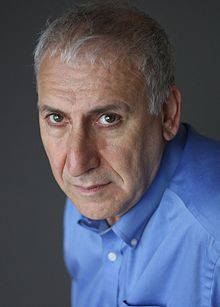
Edward Hirsch (1950- ). Poet. Born in Chicago, IL, and graduated from Grinnell College in 1972. While at college, Hirsch lived in three different dormitories: Loose Hall (1968), Read (1969), Loose again (1970), and finally in the Langan basement. A poet and essayist, Hirsch has won numerous awards: his 1986 book, Wild Gratitude, won the National Book Critics award; he has received fellowships from the National Endowment for the Arts and from the Guggenheim Foundation, and in 1997 received a MacArthur Foundation “genius” award. Presently head of the Guggenheim Foundation, Hirsch has authored another eight books of poetry as well as a half-dozen other books, and his commentary appears in many of the nation’s most respected periodicals.
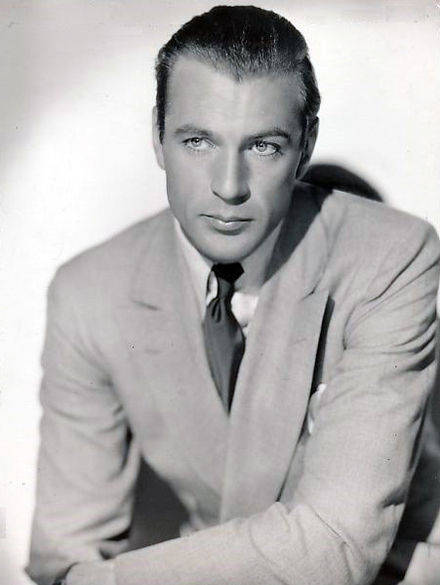
Gary Cooper (1901-1961), an actor who appeared in more than 100 films, and twice won Academy Awards for Best Actor. He has a star on the Hollywood Walk of Fame, and has received many other honors. Born Frank James Cooper in Helena, MT, Frank entered Grinnell College in 1922, and resided in Langan Hall. A student here for only one and a half years, Cooper left school in 1924 without graduating. After his family moved to Los Angeles, Cooper began to work as an extra and as a stuntman in westerns. In an effort to improve his roles, he changed his name and hired an agent. Cooper hit his stride in 1929 with The Virginian, but his first big success came as Sergeant York (1941), for which he won his first Academy Award. As Marshal Will Kane (High Noon, 1952) Cooper won his second Oscar, returning to the western genre.
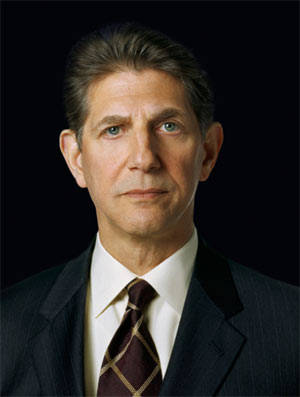
Peter Coyote (1941- ), American actor, director, and narrator of films, television and audio books. Born Rachmil Pinchus Ben Mosha Cohon in New York City, Cohon entered Grinnell College in 1960, living his freshman year in Clark Hall. Later he boarded at 1217 Fifth Avenue, 1014 Park Street (demolished), and back on campus in Langan Hall his senior year, graduating in 1964. It was at Grinnell that he changed his name, a function of chemistry and hallucinogens. After college Coyote went west, settling in San Francisco where he was active in the counter culture. In the 1980s he filled numerous roles in cinema and theater, starring for directors like Pedro Almodóvar (Kika) and Roman Polanski (Bitter Moon). He is also well-known as narrator of documentaries, most recently for Ken Burns’s The Roosevelts: An Intimate History (2014).
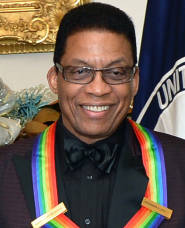
Herbie Hancock (1940- ), pianist, composer and bandleader who helped redefine the role of rhythm in jazz, and whose music has had wide appeal with pop audiences. His best-known works include Cantaloupe Island and Watermelon Man. In 2008 he won the Grammy Award for Album of the Year for River: The Joni Letters (2007). In 2011 he was named UNESCO Goodwill Ambassador for the promotion of intercultural Dialogue, and in 2013 accepted a position in the UCLA music department to teach jazz. Born in Chicago, IL, and graduated from Grinnell College in 1960. Student directories report that he lived on different floors of Clark Hall throughout his college career.
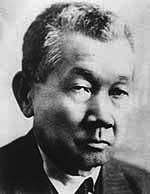
Sen Katayama (1859-1933). Labor activist. Born Yabuki Sugataro in what is today Japan’s Yokahama Prefecture, Katayama came to the United States in 1884, but reached Grinnell only in the summer of 1889, when he resided briefly at 1325 West Street (demolished), earning his keep by tending cows and horses. When classes began in September (and for three years thereafter), he boarded with the family of H. H. Robbins at 1003 Eighth Avenue (demolished), exchanging household work for room and board. He graduated from Grinnell College in 1892, and later studied at Andover Theological Seminary and Yale Divinity School. Once the Russian Revolution broke out, he made his way to Moscow, helped found the Japanese Communist Party (1922), and became deeply involved with the activities of the Communist International. He died in Moscow in 1933, and is buried in the Kremlin wall.
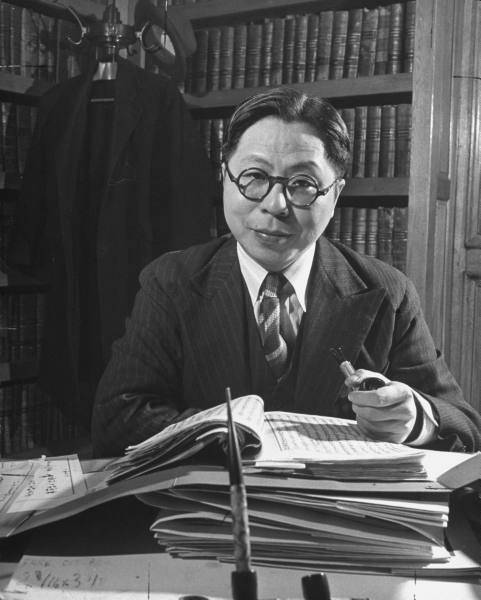
K. C. Wu (1903-1984). Political activist. Born in central China, but grew up in Beijing; graduated from Grinnell College in 1923, having resided in Dibble Hall. He then earned a doctorate from Princeton University. After returning to China, Wu became active in politics, and in 1932 became mayor of Hankow. When the Japanese arrived there in 1938, Wu and his family fled to Chongking, where Wu established close relations with Chiang Kai-Shek, who made him mayor of Chongking (1939-42). Chiang later appointed him vice-minister of Foreign Affairs, which put him in frequent contact with Zhou Enlai during the so-called “united front” against the Japanese. In 1945, Wu became mayor of Shanghai, where he remained until the Communist victory in 1949. When Chiang and the Nationalists moved to Taiwan, Wu was named governor of the island, holding that post from 1949-53.
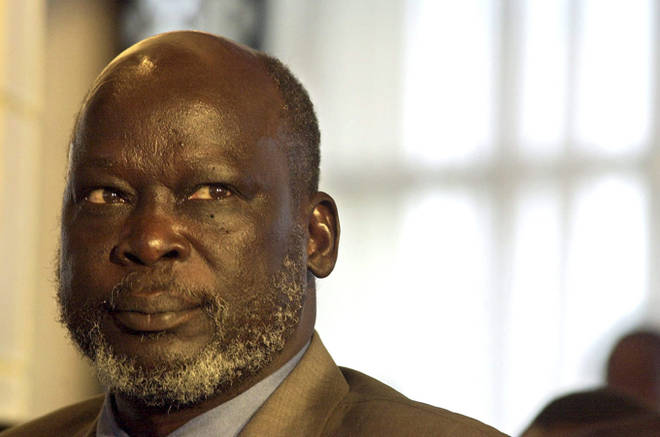
John Garang de Mabior (1945-2005). Political activist. Born in Wangulei village, Sudan, Garang graduated from Grinnell College in 1969. He continued his education in Tanzania, but interrupted his studies to return to Sudan and join the rebels in the civil war there. After the 1972 peace, Garang was absorbed into the Sudanese army, in which he continued for eleven years, rising through the officer ranks. After further military training in the US, Garang took a leave to obtain an MA and PhD in agricultural economics from Iowa State University. In 1983 Garang helped initiate the second Sudanese Civil War. At the conclusion of this war, Garang was sworn in as First Vice-President of Sudan, a position he held only briefly—he died in a 2005 helicopter crash. Student directories report that when he was a student at Grinnell Garang lived in Rawson Hall, including one year in the tower.